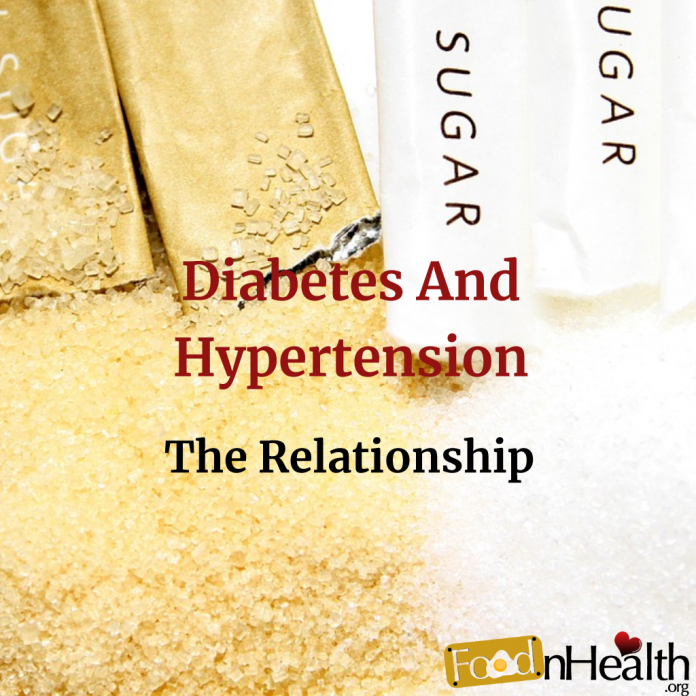Over time, we often realize that a person who is having hypertension or a high blood pressure could also be having diabetes and vice versa. Today we will be taking some time to look into how they could be related.
The Relationship
Diabetes is one of the global top ten illnesses that cause a lot of death around the world regardless of the age, region, race, gender, or even status.
High blood pressure has also successfully been listed amongst the most common public health problems in many developed countries and also top killers in today’s world. In the United States alone one out of every five adults is having a high blood pressure or is just at risk.
Although both diabetes and hypertension are non-communicable diseases, they have a way of being risks one to another.
Diabetes is a disease condition that is caused either by the inability of the body to produce insulin or the body’s resistance to the produced insulin or its insufficient production. They are the type 1 and type 2 diabetes.
Insulin is a hormone that carries glucose to the cells from the bloodstream, for an energy source in carrying out biological functions.
Having excess sugar in the bloodstream is linked to arteriosclerosis where the arteries are made to be hardened. The hardening of the arteries causes an abnormal passage of blood through them. Arteriosclerosis then causes blood pressure to be increased than the normal pressure of a non-stressed artery.
Common Risk Factors
The general risk factors for both diabetes and hypertension could be a series of diseases including, age, family history, obesity, insomnia, arteriosclerosis, hormonal imbalances and so on.
The age and family history factor in getting either diabetes or hypertension cannot be eliminated but controlled as a person grows. Hypertension and diabetes can be truly hereditary. That is, if a parent has either diabetes or hypertension or both, the children are also at risk of being diagnosed with the same disease just as the parents.
Healthy eating, modified healthy lifestyle, controlled portion sizes, low salt and sugar consumption, and exercises are a way of preventing and managing both diabetes and hypertension.
Unfortunately, high blood pressure has no particular symptom that one would observe to give a clue if the blood pressures are increased or not. The regular and routine checks when one visits the hospital is how to know if the blood pressure goes higher or still within the normal range.
The good thing is both hypertension and diabetes can be managed and treated when diagnosed and cared for in the early stages.
Hypertension is a risk factor for several life-threatening diseases like cardiovascular diseases, stroke, and myocardial infarction.
How To Prevent Hypertension and Diabetes
-
Eat less salt. Ensure that salt consumptions are less than 5mg per day. Also, ensure you avoid high sodium containing foods.
-
Reduce sugar consumptions and avoid all shades of sodas. Diabetes evolves when sugar contents are continuously high in the blood circulatory system, and not enough insulin to move them. Simple carbohydrates should be replaced with complex ones. This will allow the digestion time to take longer and provide little sugar at a time.
-
Watch your weight. Ensure that the body weight is just normal. Cut down on weight if need be. Being overweight or obese is a cause for getting diabetes or hypertension or both, and can lead to more chronic conditions like heart disease, stroke or even carpal tunnel syndrome (here’s a review of the best braces for carpal tunnel).
-
Eating clean and healthy is one way to avoid the threat of being diagnosed with these diseases. Ditch the junk, embrace nutrients. Cut deep-fries almost out of your diets. Rather have grills, baked, smoked etc. Make eating fruits and vegetables a habit. They help a lot.
-
Exercising will reduce by 30% a person’s chance of having both hypertension and diabetes. Include exercising into your daily activities to get a healthier you. You can exercise at home by getting good yourself fitness equipment like stationary bikes.
-
The consumption of alcohols and drinking alcohol has the ability to raise a person’s chance of having a high blood pressure and diabetes. It is advised to quit alcohols, as they only feed the body with empty calories.























